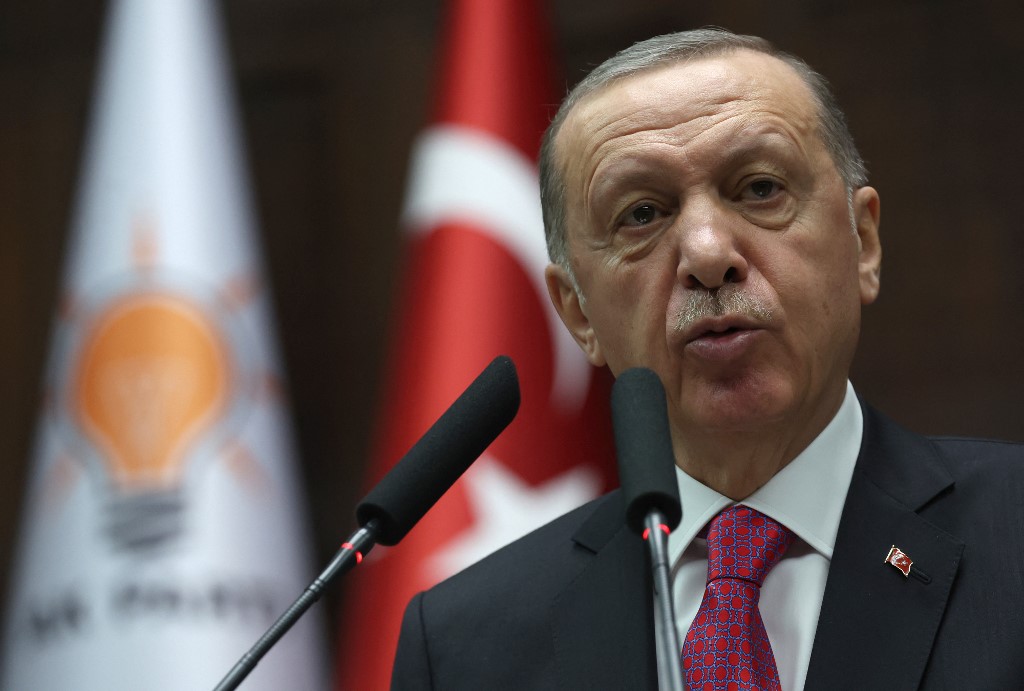Turkish President Recep Tayyip Erdoğan signaled Wednesday that he would let his new economic team hike interest rates to combat inflation and stabilize the lira, reversing an era of unconventional policies, Agence France-Presse reported.
Erdoğan, who secured re-election last month, has appointed market-friendly economist Mehmet Şimşek as finance minister and former Wall Street executive Hafize Gaye Erkan as central bank governor.
The choices were cheered by the markets, which blame Erdoğan’s push to lower interest rates at all costs for Turkey’s accumulating economic problems.
Turkey has “no choice but to return to rational ground,” Şimşek said soon after taking office.
Erdoğan said he “accepted” the changes proposed by his new appointments — although he still disagreed with their views.
“Of course, we agreed [for Şimşek] to take the steps he will take quickly and easily, together with the central bank,” Erdoğan said in comments released by his office.
But the Turkish leader, who once called high rates “the mother and father of all evil,” added that people should not assume that he had made a “serious change” in views.
“I have the same [opinion] there,” he said of high interest rates.
The central bank is scheduled to hold its next policy-setting meeting on June 22.
Turkey’s annual inflation rate dropped below 40 percent in May for the first time in 16 months, after touching 85 percent last year.
Erdoğan’s comments suggest that the powerful Turkish leader has given his new team time to show that their more conventional economic policies work.
He had spent that past two years promoting a “new economic model” that makes ultra-low interest rates a priority.
Erdoğan argues that faster economic growth that usually accompanies low rates reduces unemployment and naturally brings down the cost of living.
His approach has forced Turkey’s central bank to burn through $25 billion supporting the lira against sharp falls this year.
The lira began to lose value after Erdoğan’s election, suggesting that his new government was unwinding its artificial support measures.



